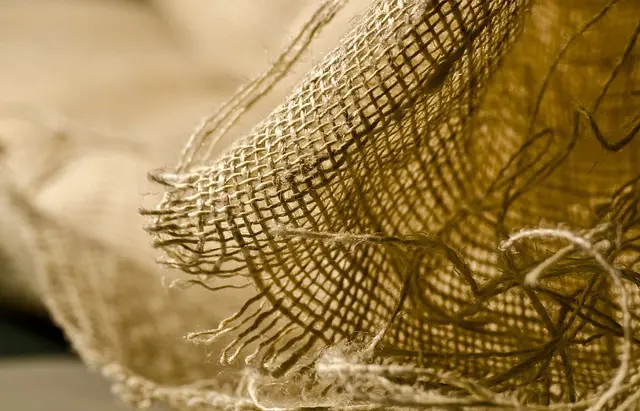Muscle soreness from intense physical activity, commonly known as delayed onset muscle soreness (DOMS), can be alleviated with a natural supplement called kratom, which is derived from the Mitragyna speciosa plant and possesses analgesic properties. Kratom, when combined with kava powder tea, a traditional remedy from Pacific Island cultures that contains pain-relieving compounds called kavapyrones, provides an enhanced effect for muscle relaxation and pain relief due to their synergistic analgesic and sedative effects. The kavapyrones in kava interact with the brain's neurotransmitter systems, offering a natural alternative to conventional analgesics by modulating pain receptors and potentially reducing inflammation. This combination is effective for managing muscle soreness and can aid recovery, but it's crucial to adhere to safe dosing guidelines as advised by healthcare providers or product labels due to their potency. Users should be mindful of the legal status of kratom in their area and seek professional advice before incorporating these remedies into their health regimen, especially if they have pre-existing conditions or are taking other medications. With responsible use, kava powder tea can be a valuable component of a holistic approach to pain management and recovery.
Muscle soreness, a common affliction among individuals engaged in physical activity, can hinder recovery and impede progress. Exploring natural remedies, this article delves into the potential of kratom supplements and the traditional Polynesian beverage, kava powder tea, as viable strategies for muscle soreness relief. We will unravel the mechanisms behind these treatments and discuss how to effectively combine them for optimal pain management. Join us as we navigate the intersection of herbal remedies and athletic recovery, offering insights that could transform your approach to post-exercise discomfort.
- Understanding Muscle Soreness and Its Relief Through Kratom Supplements
- The Role of Kava Powder Tea in Muscle Relaxation and Pain Alleviation
- Effective Integration of Kratom and Kava for Optimal Muscle Soreness Management
Understanding Muscle Soreness and Its Relief Through Kratom Supplements

Muscle soreness, often a consequence of intense physical activity or exercise, can hinder an individual’s recovery and progress. This discomfort arises from microscopic tears in muscle fibers, a natural response to the stress of training, commonly known as delayed onset muscle soreness (DOMS). To alleviate this muscle soreness, individuals have turned to natural supplements like kratom, which has garnered attention for its potential analgesic properties. Kratom, derived from the leaves of Mitragyna speciosa, is traditionally chewed or brewed into a tea, with kava powder often added to enhance its effects. The combination of kratom and kava in a tea format can create a synergistic effect that may offer superior muscle relaxation and pain relief compared to either substance alone. Kava, a psuedostemate from the Pacific Islands, is traditionally used for its sedative and anxiolytic effects and may complement kratom’s analgesic action, providing a holistic approach to managing muscle soreness. Users report that this combination helps in reducing the intensity of muscle pain post-workout, allowing for more efficient recovery and continued training. It is important to note that while these supplements offer potential relief, their use should be approached with caution due to regulatory status and potential side effects. Proper dosing and adherence to safety guidelines are crucial when incorporating kratom and kava into a muscle soreness management regimen.
The Role of Kava Powder Tea in Muscle Relaxation and Pain Alleviation

Kava powder tea, traditionally consumed in certain Pacific Island cultures, has garnered attention for its potential role in muscle relaxation and pain alleviation. The tea is prepared from the root of the Piper methysticum plant, and it contains a unique blend of compounds known as kavapyrones, which are believed to contribute to its therapeutic effects. These constituents interact with neurotransmitter systems in the brain, particularly those related to pain and anxiety, leading to a relaxing effect that can help ease muscle soreness. Clinical studies suggest that regular consumption of kava powder tea may offer relief from pain associated with muscle tension or strain by modulating the activity of pain receptors and reducing inflammation. As a natural supplement, it provides an alternative to over-the-counter analgesics, making it a popular choice for individuals seeking holistic methods for muscle soreness relief.
Incorporating kava powder tea into a wellness regimen may offer significant benefits for those experiencing acute or chronic muscle discomfort. Its calming properties are not limited to pain relief; they also contribute to overall muscle relaxation, promoting a sense of well-being and reducing the impact of stress on the body’s musculoskeletal system. It is important to note that while kava powder tea can be effective, it should be consumed responsibly and in moderation due to its potent effects. Users are advised to follow dosage guidelines provided by healthcare professionals or as directed on high-quality, standardized kava products to avoid adverse effects. When combined with other complementary therapies and a balanced lifestyle, kava powder tea can play a valuable role in managing muscle soreness and enhancing recovery.
Effective Integration of Kratom and Kava for Optimal Muscle Soreness Management

When exploring natural remedies for muscle soreness, the synergistic effects of kratom and kava can be particularly beneficial. Kratom, derived from the leaves of Mitragyna speciosa, has been traditionally used for its analgesic properties, which can help alleviate muscle pain and discomfort. When combined with kava powder, a traditional relaxant from the Pacific Islands, the dual-action approach not only targets pain but also promotes relaxation, allowing for better recovery. Kava tea, in particular, is known for its calming effects, which can be complementary to the pain-relieving qualities of kratom. This combination can be particularly effective when muscle soreness is a result of intense physical activity or as part of a post-exercise routine.
For optimal results, it’s crucial to approach the integration of these supplements with caution and adherence to recommended dosages. While both kratom and kava have their individual benefits, combining them can amplify their effects, which should be done responsibly. Users should be aware of the legal status of kratom in their region and the potential interactions with other substances or medications. It’s also advisable to consult with a healthcare provider before incorporating these supplements into your regimen, especially if you have pre-existing health conditions or are taking other medications. Proper dosing and a clear understanding of the potential effects can enhance the benefits of kava powder tea and kratom for managing muscle soreness without unnecessary risks.
Muscle soreness can significantly impede one’s quality of life, particularly after intense physical activity. This article has explored various strategies for alleviating muscle pain, with a focus on the potential benefits of kratom supplements and the traditional use of kava powder tea. By understanding how these substances interact with the body’s pain response, individuals may find effective relief. The synergistic effects of combining kratom with kava powder tea offer a promising avenue for managing muscle soreness, providing a natural alternative to consider for those seeking respite from discomfort. As with any supplement regimen, it is advisable to consult with a healthcare professional before incorporating kratom or kava into your wellness routine to ensure safety and appropriate usage.






